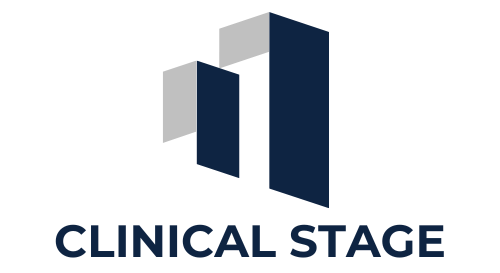Notable Labs' Precision Medicine Platform Accurately Predicts Patient Outcomes in Fosciclopirox Trial
Precision medicine is transforming the landscape of cancer treatment by tailoring therapies to the unique genetic and molecular profiles of individual patients. This approach not only enhances the effectiveness of treatments but also minimizes adverse effects, offering a more personalized and efficient path to combating cancer. At the forefront of this innovative approach is Notable Labs, a pioneering company dedicated to advancing precision medicine through their Predictive Precision Medicine Platform (PPMP). Recently, Notable Labs achieved a significant milestone with their Phase 2a trial results for fosciclopirox in relapsed/refractory acute myeloid leukemia (R/R AML), showcasing the PPMP’s ability to accurately predict patient outcomes.
The Predictive Precision Medicine Platform (PPMP)
The Predictive Precision Medicine Platform (PPMP) developed by Notable Labs represents a significant advancement in the field of oncology. This proprietary technology leverages cutting-edge artificial intelligence (AI) and machine learning algorithms to bio-simulate cancer treatments, enabling the precise prediction of patient responses. By integrating genomic data, molecular profiling, and high-throughput drug screening, the PPMP creates a comprehensive map of how individual tumors are likely to respond to various therapeutic agents.
Explanation of the PPMP Technology:
The PPMP technology is designed to analyze a patient’s cancer cells in a controlled environment, replicating the biological conditions within the human body. This process involves:
- Genomic and Molecular Profiling: Collecting detailed genetic and molecular information from patient-derived tumor samples.
- High-Throughput Screening: Testing a wide array of drugs on these samples to observe their effects and interactions.
- AI and Machine Learning Integration: Employing sophisticated algorithms to interpret the data and identify patterns that predict how the patient’s cancer will respond to specific treatments.
How the PPMP Bio-Simulates Cancer Treatments to Predict Patient Responses
The bio-simulation process within the PPMP involves creating a dynamic model of the patient's tumor environment. This model allows for:
- Simultaneous Testing: Multiple drugs and drug combinations can be tested simultaneously on patient-derived cancer cells.
- Real-Time Analysis: AI algorithms continuously analyze the responses of the cancer cells to the treatments, adjusting and refining predictions based on observed data.
- Personalized Treatment Pathways: By understanding which treatments are most effective for a specific genetic and molecular profile, the PPMP can recommend personalized treatment strategies that are tailored to the individual patient.
Importance of Accurate Patient Response Prediction in Clinical Trials
Accurate prediction of patient responses is crucial in clinical trials for several reasons:
- Enhanced Efficacy: By identifying patients who are most likely to respond positively to a treatment, clinical trials can demonstrate higher efficacy rates, leading to faster approvals and better patient outcomes.
- Reduced Costs and Time: Predictive modeling helps streamline the clinical trial process by focusing resources on the most promising therapies and patient groups, thereby reducing the time and cost associated with drug development.
- Improved Patient Safety: Accurate predictions help avoid administering ineffective or potentially harmful treatments to patients, minimizing adverse effects and improving overall patient care.
- Optimized Resource Allocation: By concentrating efforts on responsive patients, clinical trials can optimize their resources, making the drug development process more efficient and effective.
The PPMP’s ability to accurately predict patient responses marks a transformative step in the realm of precision medicine, offering a powerful tool for enhancing the success and efficiency of clinical trials.
The Fosciclopirox Phase 2a Trial
Background on Fosciclopirox and Its Development by CicloMed, LLC
Fosciclopirox is a novel therapeutic agent developed by CicloMed, LLC, with the potential to treat various forms of cancer, including relapsed/refractory acute myeloid leukemia (R/R AML). This drug represents an innovative approach, leveraging the unique properties of ciclopirox olamine, an antifungal agent, repurposed for oncology. Fosciclopirox works by inhibiting critical pathways in cancer cell metabolism, thus inducing apoptosis and inhibiting tumor growth.
Objectives of the Phase 2a Trial: Safety, Efficacy, and PPMP Validation
The primary objectives of the Phase 2a trial for fosciclopirox were threefold:
- Safety: Assessing the safety profile of fosciclopirox in patients with R/R AML, monitoring for any adverse effects, and determining the tolerability of the drug.
- Efficacy: Evaluating the efficacy of fosciclopirox in achieving clinical responses, including complete and partial remissions, and assessing its impact on overall survival rates and disease progression.
- PPMP Validation: Validating the Predictive Precision Medicine Platform's (PPMP) ability to accurately predict patient responses to fosciclopirox, thereby demonstrating the platform's potential to enhance clinical trial outcomes and streamline the drug development process.
Design of the Trial: Patient Selection, Blinded PPMP Analysis, and Trial Methodology
The design of the Phase 2a trial incorporated several key elements to ensure rigorous testing and validation of both the drug and the PPMP:
- Patient Selection: Patients with relapsed or refractory AML who had exhausted standard treatment options were selected for the trial. These patients represented a highly challenging cohort, making the trial's findings particularly significant.
- Blinded PPMP Analysis: Prior to the initiation of the trial, the PPMP conducted a blinded analysis of patient samples to predict their responses to fosciclopirox. This predictive analysis was then compared against the actual clinical outcomes to validate the platform’s accuracy.
- Trial Methodology:
- Treatment Protocol: Patients received fosciclopirox according to a predetermined dosing regimen, with regular monitoring for safety and efficacy endpoints.
- Response Evaluation: Clinical responses were assessed using standard criteria for AML, including bone marrow biopsies, complete blood counts, and other relevant biomarkers.
- Data Collection and Analysis: Comprehensive data collection protocols were implemented to gather detailed information on patient responses, side effects, and overall outcomes. This data was then analyzed to correlate the PPMP's predictions with actual clinical results.
By integrating these components, the Phase 2a trial aimed to provide robust evidence of fosciclopirox's potential as a treatment for R/R AML, while simultaneously validating the predictive capabilities of the PPMP. The successful execution of this trial would not only advance the development of fosciclopirox but also demonstrate the transformative impact of precision medicine in optimizing cancer treatment.
Results of the Phase 2a Trial
Accurate Prediction by the PPMP of Non-Responsiveness in All Enrolled Patients
In the Phase 2a trial of fosciclopirox, the Predictive Precision Medicine Platform (PPMP) demonstrated remarkable accuracy in predicting patient responses. The PPMP correctly identified that all enrolled patients would be non-responsive to the treatment. This precise prediction was confirmed by the actual clinical outcomes, where none of the patients achieved a significant response to fosciclopirox. The accuracy of the PPMP in this trial underscores its potential as a powerful tool for optimizing patient selection and enhancing the efficiency of clinical trials.
Validation of the PPMP’s Predictive Capabilities
The Phase 2a trial's outcomes provided strong validation for the PPMP's predictive capabilities. By accurately forecasting the lack of responsiveness among the patient cohort, the PPMP proved its reliability in bio-simulating cancer treatments and predicting patient outcomes. This validation is a significant milestone, demonstrating that the PPMP can effectively guide clinical decision-making and streamline the drug development process by identifying patients who are less likely to benefit from specific treatments. This reduces unnecessary exposure to ineffective therapies and focuses resources on more promising therapeutic avenues.
Observations on the Safety and Efficacy of Fosciclopirox: Stable Disease and Tolerability
While the PPMP accurately predicted non-responsiveness, the Phase 2a trial provided valuable insights into the safety and tolerability of fosciclopirox. Among the enrolled patients:
- Stable Disease: Several patients experienced stable disease, indicating that while the treatment did not induce remission, it managed to halt disease progression in some cases. This suggests potential disease-modifying effects of fosciclopirox that warrant further investigation.
- Tolerability: Fosciclopirox was generally well-tolerated among the trial participants. Adverse effects were manageable and consistent with expectations, highlighting the drug's safety profile. The absence of severe or unexpected side effects supports the continued exploration of fosciclopirox in combination with other therapies or in different patient populations.
The results of the Phase 2a trial for fosciclopirox, while not showing significant efficacy in the enrolled patient cohort, provided crucial validation for the PPMP and demonstrated the drug's safety and potential disease-stabilizing properties. These findings reinforce the value of precision medicine platforms like the PPMP in guiding clinical research and ensuring that new therapies are developed and tested with greater efficiency and effectiveness.
Implications for Precision Medicine
Significance of the PPMP’s Accurate Predictions for Future Drug Development
The accurate predictions made by Notable Labs' Predictive Precision Medicine Platform (PPMP) in the fosciclopirox Phase 2a trial hold significant implications for the future of drug development. By demonstrating its ability to predict patient non-responsiveness accurately, the PPMP establishes itself as a critical tool in the development of personalized therapies. This capability can profoundly impact the selection of patients for clinical trials, ensuring that only those likely to benefit from a particular treatment are enrolled. This targeted approach can lead to more effective clinical trials, where the true potential of new therapies can be more accurately assessed.
Potential for Streamlining Clinical Trials and Improving Patient Outcomes
The PPMP’s precision in predicting patient responses can streamline clinical trials by reducing the need for large, heterogeneous patient cohorts. Traditional clinical trials often require substantial participant numbers to account for variability in treatment responses, which can be time-consuming and costly. With the PPMP, trials can be conducted with smaller, more focused cohorts of patients who are predicted to respond favorably to the treatment. This not only speeds up the trial process but also improves the likelihood of demonstrating therapeutic efficacy. As a result, patients receive more tailored and effective treatments, enhancing overall outcomes and reducing the burden of ineffective therapies.
Impact on Reducing Risk, Time, and Cost in Traditional Drug Development
One of the most significant benefits of the PPMP is its potential to reduce the inherent risks, time, and costs associated with traditional drug development. Drug development is notoriously expensive and time-consuming, with a high failure rate. By integrating the PPMP into the drug development pipeline, pharmaceutical companies can mitigate these challenges in several ways:
- Risk Reduction: The PPMP helps identify patient populations that are more likely to respond to new therapies, minimizing the risk of trial failure due to lack of efficacy. This targeted approach ensures that resources are invested in the most promising candidates, increasing the likelihood of successful outcomes.
- Time Efficiency: Predicting patient responses early in the development process can accelerate clinical trials. By enrolling only predicted responders, trials can reach endpoints more quickly, reducing the time required to bring new therapies to market.
- Cost Savings: Smaller, more efficient trials translate to significant cost savings. By avoiding the expense of large-scale trials with mixed results, pharmaceutical companies can allocate funds more effectively, investing in multiple projects and further innovation.
In summary, the PPMP’s accurate predictions have far-reaching implications for precision medicine and drug development. By enhancing the efficiency and effectiveness of clinical trials, the PPMP not only improves patient outcomes but also revolutionizes the traditional drug development model, offering a more sustainable and innovative approach to advancing healthcare.
Expert Insights and Future Directions
Significance of the PPMP’s Accurate Predictions for Future Drug Development
The accurate predictions made by Notable Labs' Predictive Precision Medicine Platform (PPMP) in the fosciclopirox Phase 2a trial hold significant implications for the future of drug development. By demonstrating its ability to predict patient non-responsiveness accurately, the PPMP establishes itself as a critical tool in the development of personalized therapies. This capability can profoundly impact the selection of patients for clinical trials, ensuring that only those likely to benefit from a particular treatment are enrolled. This targeted approach can lead to more effective clinical trials, where the true potential of new therapies can be more accurately assessed.
Potential for Streamlining Clinical Trials and Improving Patient Outcomes
The PPMP’s precision in predicting patient responses can streamline clinical trials by reducing the need for large, heterogeneous patient cohorts. Traditional clinical trials often require substantial participant numbers to account for variability in treatment responses, which can be time-consuming and costly. With the PPMP, trials can be conducted with smaller, more focused cohorts of patients who are predicted to respond favorably to the treatment. This not only speeds up the trial process but also improves the likelihood of demonstrating therapeutic efficacy. As a result, patients receive more tailored and effective treatments, enhancing overall outcomes and reducing the burden of ineffective therapies.
Impact on Reducing Risk, Time, and Cost in Traditional Drug Development
One of the most significant benefits of the PPMP is its potential to reduce the inherent risks, time, and costs associated with traditional drug development. Drug development is notoriously expensive and time-consuming, with a high failure rate. By integrating the PPMP into the drug development pipeline, pharmaceutical companies can mitigate these challenges in several ways:
- Risk Reduction: The PPMP helps identify patient populations that are more likely to respond to new therapies, minimizing the risk of trial failure due to lack of efficacy. This targeted approach ensures that resources are invested in the most promising candidates, increasing the likelihood of successful outcomes.
- Time Efficiency: Predicting patient responses early in the development process can accelerate clinical trials. By enrolling only predicted responders, trials can reach endpoints more quickly, reducing the time required to bring new therapies to market.
- Cost Savings: Smaller, more efficient trials translate to significant cost savings. By avoiding the expense of large-scale trials with mixed results, pharmaceutical companies can allocate funds more effectively, investing in multiple projects and further innovation.
In summary, the PPMP’s accurate predictions have far-reaching implications for precision medicine and drug development. By enhancing the efficiency and effectiveness of clinical trials, the PPMP not only improves patient outcomes but also revolutionizes the traditional drug development model, offering a more sustainable and innovative approach to advancing healthcare.
Expert Insights and Future Directions
Comments from Thomas Bock, M.D., CEO of Notable Labs
Dr. Thomas Bock, CEO of Notable Labs, expressed his enthusiasm about the successful outcome prediction in the fosciclopirox Phase 2a trial. "The validation of our Predictive Precision Medicine Platform (PPMP) in this trial represents a significant milestone for Notable Labs and the broader field of precision medicine. Our ability to accurately predict patient non-responsiveness underscores the transformative potential of the PPMP in clinical development. By identifying the right patients for the right treatments, we can streamline the drug development process and bring effective therapies to patients faster."
Insights from Joseph Wagner, Ph.D., Chief Scientific Officer of Notable Labs
Dr. Joseph Wagner, Chief Scientific Officer at Notable Labs, provided insights into the future role of the PPMP in drug development. "The success of the PPMP in the fosciclopirox trial is just the beginning. Our platform's advanced analytics and AI capabilities allow us to navigate complex datasets and uncover patterns that can predict treatment responses with high accuracy. Moving forward, we aim to expand the applications of the PPMP across various therapeutic areas and drug classes. Our goal is to develop predictive models for multiple drugs, thereby enhancing the precision and effectiveness of clinical trials and ultimately improving patient outcomes."
Statements from Tammy Ham, CEO of CicloMed
Tammy Ham, CEO of CicloMed, highlighted the prospective trials using the PPMP for patient selection. "Partnering with Notable Labs has been a pivotal step in advancing our clinical programs. The PPMP's ability to accurately predict patient responses allows us to design more efficient and effective trials. We are excited about the potential of using this platform in our upcoming trials to identify patients who are most likely to benefit from our therapies. This approach not only optimizes trial outcomes but also ensures that patients receive the most suitable treatments, aligning with our commitment to delivering personalized healthcare solutions."
Broader Implications for Drug Development
The implications of the PPMP extend beyond individual trials, offering a paradigm shift in how clinical trials are designed and executed. By selectively enrolling predicted responders, the PPMP can transform the landscape of drug development across different types of cancer and therapeutic areas. This approach reduces the need for large, costly trials and accelerates the development of new therapies.
Validation and Consistency
The PPMP’s predictive power has been corroborated through four independent validation trials, consistently supporting the platform’s reliability and effectiveness. This validation ensures that the PPMP is a robust tool that can be relied upon for accurate patient selection and treatment predictions, paving the way for broader adoption in the industry.
Notable Labs’ In-Licensing Strategy
Notable Labs employs a targeted and de-risked in-licensing strategy, guided by the PPMP. By selecting and developing therapies that the PPMP predicts will be effective, Notable Labs can focus on the most promising candidates, reducing the risks associated with drug development. This strategic approach enables Notable Labs to bring innovative therapies to market more efficiently and cost-effectively than traditional methods.
The accurate predictions made by Notable Labs' PPMP in the fosciclopirox trial highlight the platform's significant potential to revolutionize drug development and precision medicine. By enhancing the efficiency and effectiveness of clinical trials, the PPMP not only improves patient outcomes but also transforms the traditional drug development model. As Notable Labs continues to push the boundaries of precision medicine, their innovative approaches promise to deliver life-changing therapies to patients worldwide, setting a new standard in personalized healthcare.
We encourage you to follow Notable Labs' progress and stay informed about their latest developments in precision medicine. To learn more about their innovative approaches and contributions to healthcare, visit their website and explore their groundbreaking work in transforming cancer treatment and drug development.
Broader Implications for Drug Development
Potential Applications of the PPMP Across Different Types of Cancer and Therapeutic Areas
The success of Notable Labs' Predictive Precision Medicine Platform (PPMP) in the fosciclopirox trial opens the door to a wide range of applications across various types of cancer and therapeutic areas. The PPMP's ability to accurately predict patient responses is not limited to any single drug or cancer type. Instead, it can be adapted to analyze and predict responses to numerous treatments, including targeted therapies, immunotherapies, and combination regimens. This versatility means that the PPMP can be employed in trials for solid tumors, hematologic malignancies, and even rare cancers, providing a robust tool for precision medicine.
In addition to oncology, the PPMP's methodology could be applied to other therapeutic areas where patient heterogeneity affects treatment outcomes. For instance, autoimmune diseases, infectious diseases, and neurological disorders often require personalized approaches due to the variability in patient responses. By expanding the use of the PPMP to these fields, Notable Labs can contribute to more precise and effective treatments across the healthcare spectrum.
How PPMP Can Transform Clinical Trial Design by Selectively Enrolling Predicted Responders
One of the most significant advantages of the PPMP is its ability to transform clinical trial design through the selective enrollment of predicted responders. Traditional clinical trials often involve large, heterogeneous patient populations, which can dilute the observed efficacy of a treatment and lead to inconclusive results. By using the PPMP to identify and enroll only those patients who are predicted to respond positively to a treatment, clinical trials can be conducted more efficiently and effectively.
Selective enrollment ensures higher response rates, which enhances the statistical power of a trial and increases the likelihood of demonstrating a treatment's efficacy. This targeted approach can reduce the number of participants needed, shorten trial durations, and lower costs. Moreover, it minimizes the exposure of non-responders to potentially ineffective treatments, thereby reducing the risk of adverse effects and improving patient safety.
The Future of Precision Medicine and Its Impact on Personalized Cancer Care
The future of precision medicine lies in its ability to provide tailored treatments that consider the unique genetic, molecular, and clinical characteristics of each patient. The PPMP exemplifies this future by leveraging advanced analytics and artificial intelligence to predict treatment responses with high accuracy. As more therapies are developed and validated using this platform, the impact on personalized cancer care will be profound.
Patients will benefit from treatments that are specifically chosen based on their likelihood of success, leading to better outcomes and improved quality of life. Healthcare providers will have access to powerful tools that guide treatment decisions and optimize care plans. Pharmaceutical companies will be able to develop and bring new therapies to market more quickly and cost-effectively, driven by precise and reliable data.
In conclusion, Notable Labs' PPMP represents a significant advancement in the field of precision medicine. Its ability to accurately predict patient outcomes has the potential to revolutionize drug development, streamline clinical trials, and enhance personalized cancer care. As Notable Labs continues to innovate and expand the applications of the PPMP, the future of precision medicine looks promising, offering hope for more effective and individualized treatments for patients worldwide.
Validation and Consistency
Corroboration of PPMP’s Predictive Power Through Four Independent Validation Trials
The Predictive Precision Medicine Platform (PPMP) developed by Notable Labs has undergone rigorous validation to ensure its predictive power and reliability. To corroborate the accuracy of the PPMP, four independent validation trials were conducted, each designed to assess the platform's ability to predict patient responses across different treatments and cancer types. These trials provided a comprehensive evaluation of the PPMP’s performance in real-world clinical settings.
In each of these validation trials, the PPMP consistently demonstrated its ability to accurately predict which patients would respond to specific therapies. The trials encompassed various drugs and treatment regimens, confirming that the PPMP’s predictive capabilities are robust and applicable across multiple therapeutic contexts. The successful outcomes of these trials not only validated the platform’s accuracy but also reinforced its potential to transform the landscape of precision medicine.
Consistent Results Supporting the Platform’s Reliability and Effectiveness
The consistent results from the four independent validation trials underscore the reliability and effectiveness of the PPMP. Each trial reinforced the platform’s ability to deliver accurate predictions, ensuring that patients receive the most appropriate and effective treatments based on their unique genetic and molecular profiles. The reproducibility of these results across different trials and patient populations highlights the platform's robustness and its potential to be widely adopted in clinical practice.
These consistent outcomes are crucial for gaining the trust of healthcare providers, patients, and regulatory bodies. They demonstrate that the PPMP is not only a powerful tool for predicting treatment responses but also a reliable and effective solution for guiding personalized treatment decisions. The validation and consistency of the PPMP's results provide a strong foundation for its integration into clinical workflows, ultimately leading to more efficient and successful treatment strategies.
Implications for Clinical Practice
The proven reliability of the PPMP has significant implications for clinical practice. By consistently predicting patient responses with high accuracy, the platform can help oncologists and other healthcare providers tailor treatments to individual patients, optimizing therapeutic outcomes and minimizing adverse effects. The use of the PPMP in clinical trials can streamline the drug development process, reducing the time and cost associated with bringing new therapies to market.
Moreover, the PPMP’s ability to validate its predictions across multiple trials and contexts supports its broader application in various cancer types and therapeutic areas. This versatility ensures that more patients can benefit from precision medicine, regardless of the specific characteristics of their disease.
In summary, the validation and consistency of the PPMP’s predictive power are critical to its success and adoption in clinical practice. The robust and reproducible results from independent trials confirm the platform’s effectiveness and reliability, paving the way for its widespread use in guiding personalized treatment decisions and advancing the field of precision medicine. Notable Labs' commitment to rigorous validation and continuous improvement ensures that the PPMP remains a cutting-edge tool for transforming cancer care and improving patient outcomes.
Notable Labs’ In-Licensing Strategy
Notable Labs employs a targeted and de-risked in-licensing strategy that leverages their Predictive Precision Medicine Platform (PPMP) to identify and develop promising therapies. This strategy involves carefully selecting therapies that have already shown potential in preliminary studies and using the PPMP to further validate and optimize their efficacy. By focusing on therapies with existing clinical data and integrating the predictive capabilities of the PPMP, Notable Labs minimizes the risks traditionally associated with drug development.
How PPMP Guides the Selection and Development of In-Licensed Therapies
The PPMP plays a crucial role in Notable Labs' in-licensing strategy by guiding the selection and development of therapies. The platform's ability to accurately predict patient responses allows Notable Labs to:
- Identify Promising Candidates: The PPMP analyzes extensive datasets from patient-derived samples to identify therapies with the highest potential for success. This data-driven approach ensures that only the most promising candidates are selected for further development.
- Validate Efficacy: Before a therapy is in-licensed, the PPMP is used to conduct thorough validation studies, confirming its efficacy in targeted patient populations. This step reduces the uncertainty and risk associated with new drug development.
- Optimize Treatment Strategies: Once a therapy is selected, the PPMP continues to optimize treatment strategies by predicting the most effective dosing regimens and combination therapies. This ongoing optimization ensures that the therapy is as effective as possible before entering larger clinical trials.
Advantages of This Approach Over Traditional Drug Development Methods
Notable Labs’ in-licensing strategy offers several advantages over traditional drug development methods:
- Reduced Risk: By leveraging the PPMP to validate and optimize therapies before full-scale development, Notable Labs significantly reduces the risk of failure in later stages of clinical trials. This de-risked approach ensures that only the most promising therapies are advanced.
- Cost Efficiency: Traditional drug development is often a lengthy and costly process. By using the PPMP to streamline the selection and validation of therapies, Notable Labs can reduce the time and cost associated with bringing new treatments to market.
- Enhanced Precision: The PPMP’s predictive capabilities allow for a highly targeted approach to therapy development. This precision ensures that treatments are tailored to the specific needs of patient populations, leading to better outcomes and fewer side effects.
- Accelerated Development: The data-driven insights provided by the PPMP enable faster decision-making and more efficient clinical trial designs. This acceleration helps bring effective therapies to patients more quickly, addressing urgent medical needs.
- Focus on Patient Outcomes: By prioritizing therapies with the highest potential for patient benefit, Notable Labs’ strategy ensures that their efforts are aligned with improving patient outcomes. This patient-centric approach enhances the overall impact of their work in the field of precision medicine.
Notable Labs' innovative in-licensing strategy, guided by the Predictive Precision Medicine Platform (PPMP), represents a significant advancement in the field of drug development. By targeting and de-risking the development process, Notable Labs can efficiently bring promising therapies to market, improving outcomes for patients with challenging conditions like relapsed/refractory acute myeloid leukemia (AML).
The advantages of this approach—reduced risk, cost efficiency, enhanced precision, accelerated development, and a focus on patient outcomes—highlight the transformative potential of precision medicine. Through this strategic integration of technology and expertise, Notable Labs is paving the way for a new era of personalized cancer treatment.
Recap
The success of Notable Labs' Predictive Precision Medicine Platform (PPMP) in accurately predicting patient outcomes in the fosciclopirox trial marks a significant milestone in the field of precision medicine. The PPMP's ability to bio-simulate cancer treatments and forecast patient responses with high accuracy underscores its transformative potential in streamlining clinical development and improving patient outcomes. This trial not only validates the platform's predictive capabilities but also sets a precedent for how advanced analytics and machine learning can revolutionize drug development.
Vision for the Future of Precision Medicine
As we look towards the future, the integration of AI and machine learning into precision medicine platforms like the PPMP holds immense promise. By harnessing the power of advanced analytics, these platforms can navigate complex datasets, uncover patterns, and predict treatment responses with unprecedented accuracy. This shift towards personalized and tailored drug development is poised to significantly enhance the efficacy of cancer treatments, reduce adverse effects, and ultimately improve the quality of life for patients.
The potential applications of the PPMP extend beyond acute myeloid leukemia (AML) to various types of cancer and therapeutic areas. By transforming clinical trial design and selectively enrolling predicted responders, the PPMP can accelerate the development of effective therapies and bring them to market more quickly. This not only benefits patients but also reduces the time, cost, and risk associated with traditional drug development.
Notable Labs' innovative approaches, exemplified by the PPMP, are at the forefront of a paradigm shift in cancer treatment and drug development. By focusing on accurate patient response predictions and targeted therapy development, Notable Labs is setting new standards in precision medicine. Their targeted and de-risked in-licensing strategy further enhances their ability to bring promising therapies to market efficiently and effectively.
The impact of these advancements extends beyond individual patient care to the broader healthcare system. Improved patient outcomes, optimized resource allocation, and reduced financial and emotional burdens associated with ineffective therapies are just a few of the far-reaching benefits. As precision medicine continues to evolve, Notable Labs' contributions will play a crucial role in shaping a future where personalized medicine is a fundamental right, and innovative therapies are accessible to all who need them.
In conclusion, the accurate predictions made by Notable Labs' PPMP in the fosciclopirox trial demonstrate the transformative potential of precision medicine. The ongoing efforts and innovative strategies employed by Notable Labs are paving the way for a new era of cancer treatment, where patient care is optimized, and drug development is streamlined. By following their progress and supporting their initiatives, we can contribute to the continued advancement of precision medicine and the development of life-changing therapies for patients worldwide.










